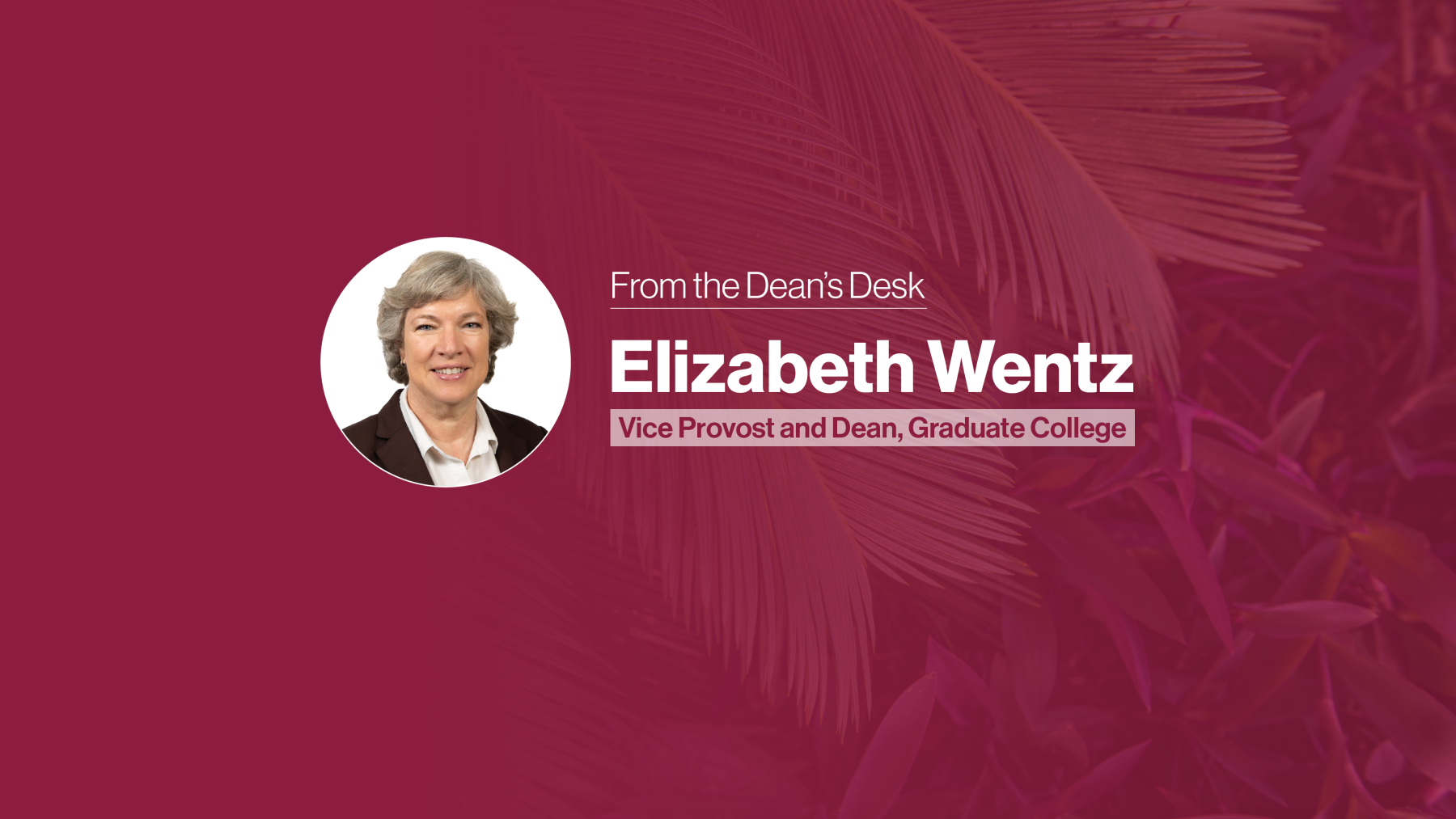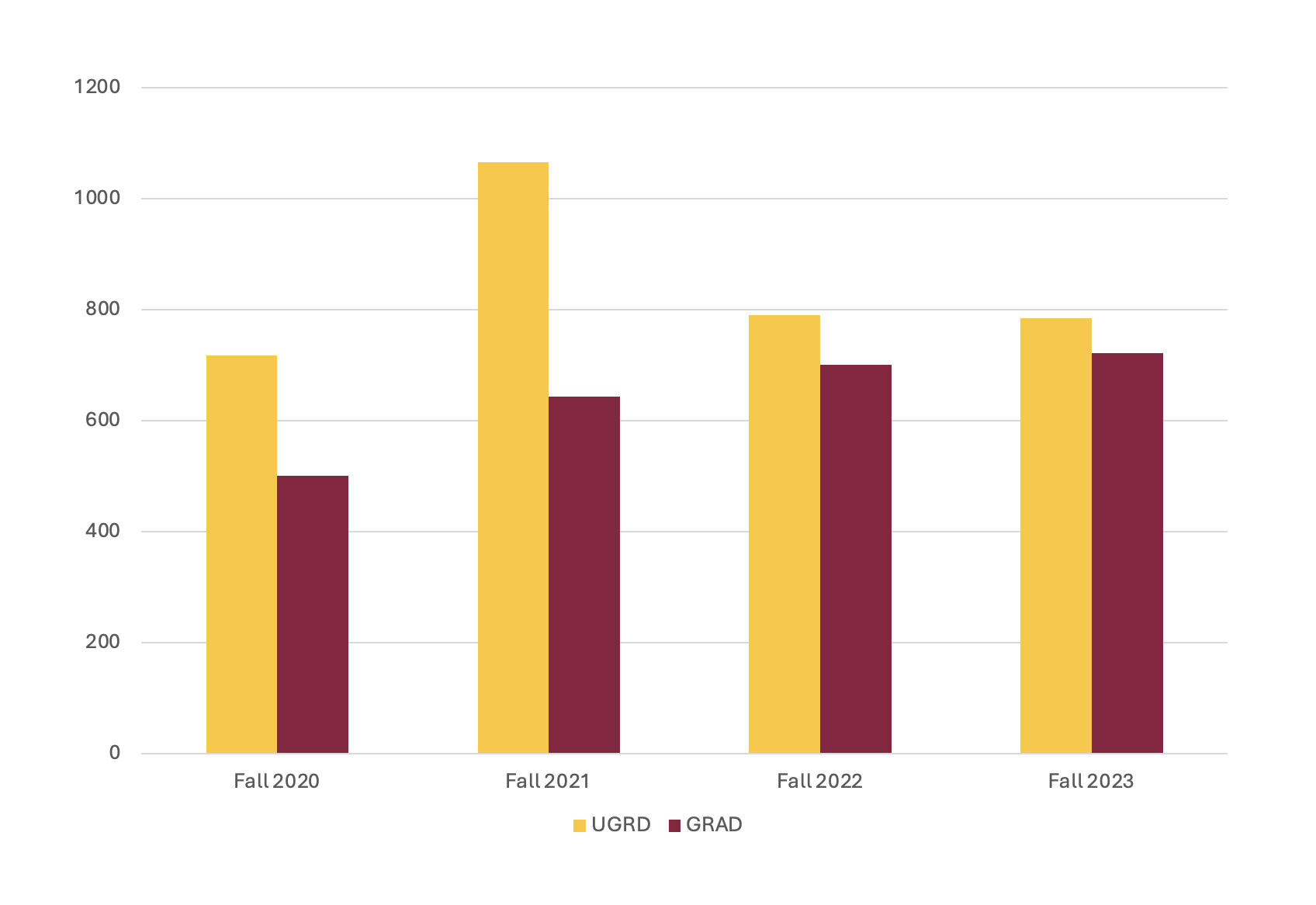
Reimagining the accelerated master’s degree: Flexibility for the modern graduate student
This article is the second in the series on how reimagining graduate education can contribute to “solving global grand challenges.” In a previous piece, I explored the question, What if graduate students could design a master’s degree based on two or more topics they want to study?
In this essay, the focus shifts to the accelerated master’s degree to answer the question, What if students could take one, two or three years off before returning to complete their accelerated master’s degree?
Did you know that undergraduate students in approved programs can start taking graduate coursework their senior year and apply credit towards a master’s degree? And did you know that it’s possible for students to switch modalities — they can complete their bachelor’s degree in person and their master’s degree online while sharing some coursework, and vice-versa?
The accelerated master’s degree offers ASU undergraduate students the chance to earn graduate-level credits while completing their undergraduate programs. This shortens the time required to earn a master’s degree and may allow undergraduate students to apply their scholarships toward eligible graduate courses while still an undergraduate student. This aligns with research showing that a master’s degree typically leads to higher income and greater job stability compared to holding only a bachelor’s degree.
When we looked at the data we saw that students were aware, eligible and were enrolling in accelerated master’s programs (see chart). However, we discovered that fewer students continued into the graduate portion of their degree. In other words, many students would complete their bachelor’s degree with up to 12 graduate-level credits but then stop there. We sought to make changes to increase access and encourage completion of the master’s degree.

We understood that bachelor’s degree holders often have excellent job prospects, so we didn’t want students to miss out on the opportunity to finish their master’s if they secured employment.
To address this, we made two key changes.
First, we now allow accelerated master’s students to complete their bachelor's degree in person and their master’s degree online. In addition, with select combinations, some programs allow online bachelor’s degrees to share hours with an in-person master’s degree. This change increases students' options and provides flexibility in completing their degrees
Second, we extended the time students have to return to ASU to complete their master’s degree; they now have up to three years to do so. This allows them to work full-time, gain professional experience, and return later to finish their degree.
These policy changes align with our belief in providing flexible pathways for students to pursue their academic and professional goals.
To learn more about the accelerated master’s program, please visit acceleratedmasters.asu.edu.
Upcoming topics will include:
- What if graduate students could take degree programs designed for the local economy? What if graduate students could access customized knowledge to acquire new skills or for their careers and then translate this into a credentialed certificate or credit towards a degree?
- What if graduate students could pursue flexible programs designed to be online with intentional immersion components?
- What if graduate students could gain admission into a master’s program through targeted courses that act as on-ramps?
- What if ASU bachelor’s degree earners were automatically admitted into ASU master’s programs?
- What if graduate students didn’t apply to just one degree program but were considered for other master’s degrees?
- What if graduate students could collaborate with their peers on research and earn degrees through team research?
- What if graduate students could engage with the Graduate College well beyond their time as students and influence the next generation of scholars and professionals?
Elizabeth Wentz
Vice Provost and Dean, Graduate College
More stories from the Graduate Insider

Inside Graduate College’s Three Minute Thesis competition
When Aliyah Egan stepped onto the stage as a master’s student in last year’s Graduate College Three Minute Thesis (3MT) competition, she faced a challenge familiar to many researchers: explaining complex, specialized work to an audience with little or no background in her field.

Mentoring with intention: Strengthening graduate support at ASU
January is National Mentoring Month, a time to celebrate the impact mentoring can have and to reflect honestly on where gaps remain. At Arizona State University, mentoring is recognized as a critical component of graduate student success.

Graduate education is an adventure
About eighteen months ago, I set out on a journey walking the islands of the Dodecanese during a sailing trip in Türkiye and Greece with several friends. Along the way, I found winding paths, timeless villages and breathtaking views of sea and sky. That experience got me thinking about how adventure shows up in other parts of life, especially in learning.